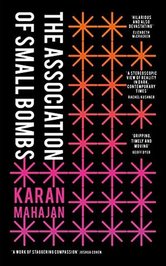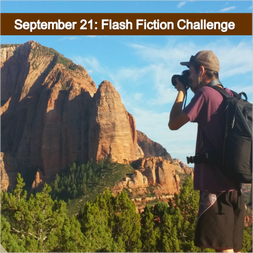Through the drama and symbolism of the bomb, Karan Mahajan examines both the aftermath of terror and the sociopolitics of contemporary middle-class Indian life. Amid the grand themes, the focus on the small details (especially the tedium of waiting both on the part of the activists awaiting orders from their superiors and the bereaved families awaiting the conclusion of a drawn-out court case) we are see the world through the diverse characters’ eyes. Although the topic is serious, the novel is not without humour, and I particularly enjoyed the description of shopping for the components of the bomb.
While the fight for Kashmiri independence, which motivates the terrorists, is only lightly sketched, the discrimination against Indian Muslims, the extent of which came as a surprise to me, is heavily underlined. The Hindu Khuranas, previously flaunting their friendship with the Ahmeds as testament to their liberal credentials, become more right wing after the bomb has taken their sons. Several of the characters explore religion both as a potential source of solace and sense-making in a meaningless world and as a kind of tribalism and a retreat from the challenges of diversity.
For Mansoor, aged twelve at the time of the blast, it proves difficult to untangle the physical from the psychological impact. His injured wrist, having recovered with physiotherapy, threatens his career as a computer programmer when he develops repetitive strain injury (the first time I’ve come across that in a novel) during his degree course in the USA. Later, he interprets this as having himself become the bomb.
The Association of Small Bombs is published by Chatto & Windus from whom I received my review copy.
With the multiple viewpoints on a controversial issue, I thought this review would be a good fit for the latest flash fiction challenge to write a 99-word story using a lens. Fresh from a Ganesh Chaturthi storytelling walk last weekend, I’ve stuck with the Hindu theme in a retelling of a traditional story:
The whole world
| “Are you serious? Whoever’s first to circumnavigate the world gets everything?” “If you both agree,” said the Sage. My brother nodded. The crazy kid doesn’t even have a pilot’s licence. I like to win, but I’d rather it were more of a challenge. After twenty-three hours, my eyes stung. Rubbing them, blinking, nothing changed the view: my brother with a gold medal swinging from his neck. The Sage placed his hand on my shoulder. “You did well, but there are other ways of looking at the world.” My brother waved. And went back to running circles round our parents. |























 RSS Feed
RSS Feed





















